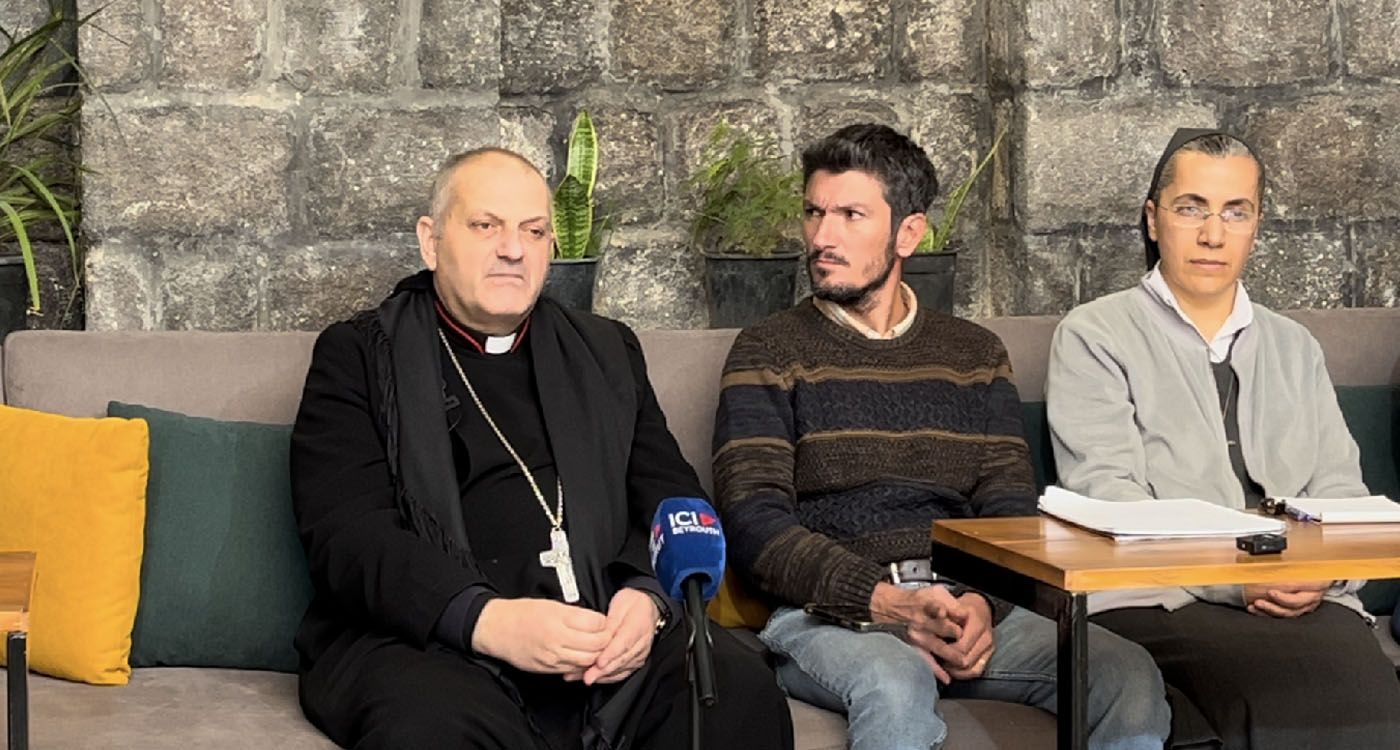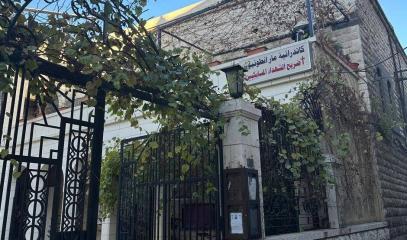Syrian churches beyond Assad: Rebuilding from citizenship
Syrian Christians wait with bated breath fearing the introduction of Sharia law and waiting for a new constitution. The Maronite Patriarch and the bishops of the various Churches defend the idea of citizenship and equal rights. The self-criticism of the Maronite Archbishop of Damascus who admits a ‘lack of courage’ in ‘telling the truth’ about the atrocities committed by the deposed regime.
Beirut (AsiaNews) - The head of the Maronite Church, Patriarch Beshara Raï, has encouraged Syrian Christians - suspended between hope and fear for the future - and reduced today more than ever to a tiny minority (a population reduced by two thirds since the beginning of the civil war in 2011) to remain in their country.
An invitation accompanied by an exhortation to engage resolutely in the reconstruction of their homeland, basing this rebirth ‘on the principle of citizenship and equality, without discrimination on religious, confessional, ethnic or cultural grounds’.
The cardinal launched the exhortation in the homily of the Sunday Mass celebrated yesterday, in which he spoke on the situation of Christians in Syria in the aftermath of the fall of Bashar al-Assad's regime.
The long-time dictator was ousted by a coalition of rebels and opponents led by the Islamic group Hay'at Tahrir al-Sham (Hts). ‘Syria is the cradle of Christianity in the region,’ recalled the primate, whose Church was born in Antioch, one of Syria's main cities in Roman times, and who takes the name “Patrarch of Antioch and all the East”.
Commenting on the ‘reassuring’ words of the leader of Hts, Ahmed el-Chareh, alias Abu Mohammad al-Jolani, who encouraged Christians not to change their ways, the Patriarch added: ‘Christians must live their natural and active presence within Syrian society, being a genuine and essential component of it’.
In this regard, yesterday evening Lebanese television broadcast the lighting ceremony of the Christmas tree in front of the Notre-Dame Cathedral in Tartous, on the Syrian coast, in the presence of the local Maronite bishop, Antoine Chbeir.
According toAfp reports, in Aleppo the Latin Church immediately reclaimed a property occupied by the Baath party that had been in power for over sixty years and hung the Vatican flag there. The patriarchal exhortation comes at a time when the truth is coming out and rumours are swirling about the implacable nature of the police regime established by President Hafez el-Assad, who came to power in 1971, and then by his son, who succeeded him.
The Assads, who belong to the Alawite minority, ruled Syria with an iron fist for 53 years, in the name of an ‘alliance of minorities’ that demonised Sunni Islam, the majority in Syria, and led in particular to the suppression of a Muslim Brotherhood uprising in Hama (February 1982), during which tens of thousands of Syrians were massacred.
Self-criticism
In this connection, and for the first time in public, the Maronite Archbishop of Damascus, Msgr. Samir Nassar, was self-critical of the behaviour of the Churches in Syria. ‘We were not brave enough,’ he admitted, ‘to tell the truth’.
Hundreds of thousands of Syrians have been imprisoned in indescribable conditions, killed or ‘disappeared’ under this dictatorship. Speaking to Caroline Hayek, special correspondent of L'Orient-Le Jour (LOJ), the archbishop described a Syria where everyone, including the clergy, was ‘under 24-hour surveillance’ and where he himself, when in office, shared his ideas ‘in hushed tones’, even outside Syria.
‘The secret services, the ‘moukhabarat’, were everywhere,’ stressed Mgr Nassar. They passed through the cook, the porter, the sacristan [...]. There were fourteen intelligence services and daily reports [...]. Everyone controlled everyone else,' he continues, ’and many priests were also involved in this system. One day they even found a microphone in a pen in my drawer...'. From now on, the prelate concluded, ‘we must not think as a community, but as citizens’.
‘Revolution of the gaze’
These were the words of the Syrian Catholic Archbishop of Homs, Hama and Dabek, Mgr Jacques Mourad, at a press conference organised in Damascus on 13 December by the French association L'Œuvre d'Orient, which has been present in Syria for over 150 years.
A member of the Mar Musa community, founded by Jesuit Fr Paolo Dall'Oglio who has been missing in Syria since 2013, the archbishop, taken hostage by the Islamic State group in 2015, defended the idea of a ‘revolution of the gaze’. ‘There is work to be done to liberate our gaze. We must heal our memory,' he insisted. 'Let us help this new state, even if it claims to be Muslim [...]. We are called to assume our responsibilities in the direction of this country'.
Mgr Mourad, however, spoke out against the plan to make sharia (Islamic law) the source of institutions, as stated by some of Syria's new masters, including the interim government's Minister of Justice (in office until March 2025).
‘We have fought against injustice,’ he said, “but not so that Sharia law can replace the Palace of Justice”. Finally, the prelate called for the lifting of US and international sanctions against Syria, saying that ‘these sanctions have not affected the ruling class, but have reduced the people to poverty. Eighty per cent of Syrians live below the poverty line'.








.png)










